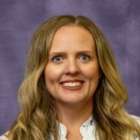Music Appreciation
Kimberly High School 2025-26
CSI Dual Credit: MUSI 100, Spring 2026, 3 credits
Mr. Belliston – Room 198
Email: mbelliston@kimberly.edu
Phone: 208-423-4170 ext. 3137
Welcome to Music Appreciation! In this class, students will receive both high school and college credit through CSI as we create music and play along with old and new tunes while learning the basics of music theory, music history, and study of and experience with basic instruments. I strongly encourage students to wait until their Junior year to take this course so they have a strong background in writing. Musicians of all skill levels will learn and grow in this class. There will be no required performance opportunities in this course, but you will attend or view online at least 4 concerts outside of class. Email is the best way to contact me. I will answer all emails within 2 school days. If you post a question after 3:00 p.m. on Friday, I may not answer it until Monday.
Materials:
- Pencil(s) or Pen(s) and notebook (you can also use a one-to-one device for notes)
- Textbook (provided), The World of Music by David Willoughby 7th Edition
- One-to-one device
Description:
A non-technical course designed to provide a basis for enjoyable listening through the discovery of stylistic differences between historical eras and the individual composers within the eras and through the awareness of the various performance media.
Student Learning Outcomes (SLO)
Upon completion of this course, students will be able to:
1. Identify different genres of music and the instruments used in each
2. Identify elements of the culture surrounding different genres of music
3. Critically critique live and recorded music
Grading (entire school year):
| Attendance & Participation | 25% |
| Written work | 25% |
| Concert Reviews (2 per semester) | 25% |
| Tests/Assessments (including final) | 25% |
Based on the 100% total listed above, letter grades will be assigned as follows:
A: 90 % or above B: 80 % to 89.9 % C: 70 % to 79.9 %
D: 60 % to 69.9 % F: below 59.9 % I: incomplete
Attendance & Participation
- Students will earn up to 10 points (5 points per class) a week.
- 3 points for showing up on time and participating well.
- 2 points for each class they are prepared with materials.
- Students will have 2 absences and 1 tardy per semester that will not count against them. Beyond the allowable absences (2) and tardy (1), make-up work for missed classes will only be given for emergency situations (i.e.: funeral, illness, hospitalization or other significant emergencies. Documentation will be required. Family vacation, lunch date with parent, doctor’s appointments, etc. will count as the two (2) allowable absences but will NOT count as emergency situations). After 6 absences, regardless of reason for absence, special determinations may need to be made since participation, attendance, and performances could be adversely affected by missing so many classes.
- Students may only use electronic devices with permission of the teacher.
- Students may bring a water bottle to class. Other food or drink, including gum, is not allowed in class.
- Students will engage in class and participate fully. Participation includes commenting, adding to the discussion and sharing ideas. Participation is the largest measure of success.
- Students are expected to follow student handbook behavior and dress guidelines.
- Students are expected to be honest, respectful, and kind to everyone, both in and out of class. Any disrespectful behavior (bullying, lack of participation, poor effort, etc.) can result in points deducted in participation and administrative discipline.
Written work, Concert Reviews, & Assessments
- Students will have written work/projects that will assist in the student learning. Many of these assignments will be done online through canvas.
- Students are expected to attend or watch 2 concerts per semester outside of class. Only one of these concerts may be at the high school level, and none may be middle or elementary school level. Students will write a review that will discuss the musical elements discussed in class and a response to what they saw and heard.
- Students will be assessed through tests and quizzes. If a student is absent the day of a test, they will need to schedule a time to make it up within a week of returning to school.
Dropping a Course and Withdrawal
The drop period for full semester courses ends on the first Sunday following the beginning of the term. A dropped course is not reflected on the student’s transcript. The withdrawal period then begins and lasts through 75% of the course. Withdrawal means the student attempted the course but did not complete any credit; the grade of W will appear on the student’s transcript. Students are responsible for all tuition and fees associated with withdrawn courses. No course may be withdrawn from after 75% of the course has elapsed. Students will be issued a grade after this deadline. Drop and Withdraw deadlines for non-standard courses can be found on the student’s schedule in MyCSI.
In order to withdraw from one or more courses, a completed Add/Drop/Withdraw form is required, which can be found in MyCSI or at the Office of the Registrar. Students withdrawing from all credited courses must receive a Financial Aid signature prior to submitting the form to the Office of the Registrar or any off-campus center.
W grades can have a number of negative consequences, including negatively impacting students’ eligibility for Federal Financial Aid. Ws on transcripts can also raise questions by transfer institutions and even prospective employers. Students should carefully consider the consequences of Ws before withdrawing from courses.
Attendance Verification for Financial Aid
Attendance Verification is submitted each semester. Your Federal Student Aid is based on your academic attendance and participation in an academically-related activity, see csi.edu/financialaid.
Fast Forward Money is available for dual credit.

